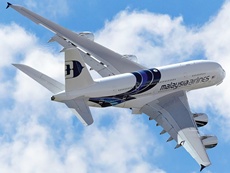Plane hunt: black box ‘pings’ heard, but time running out
07 Apr 2014
An Australian vessel has found the ''best lead so far'' in the search for the missing Malaysia Airlines plane, having detected signals consistent with those from 'black box' flight recorders.
 Defence vessel Ocean Shield acquired the signal twice, once for more than two hours, said Australia's Air Chief Marshal Angus Houston, who is personally leading the search.
Defence vessel Ocean Shield acquired the signal twice, once for more than two hours, said Australia's Air Chief Marshal Angus Houston, who is personally leading the search.
He told reporters in Sydney that it was the "most promising lead" so far, but added that more information was needed: "We haven't found the aircraft yet and we need further confirmation."
The plane, carrying 239 people (mostly Chinese, but including several Indians), was flying from Kuala Lumpur to Beijing on 8 March when it disappeared. Malaysian officials say they believe it crashed in the southern Indian Ocean.
Meanwhile, a British navy ship with sophisticated sound-locating equipment arrived today in the relevant patch of the southern Indian Ocean to determine whether underwater sounds picked up by a Chinese ship crew using a hand-held device came from the missing Malaysia Airlines black boxes.
Britain reported the HMS Echo had arrived in the new area.
Those coordinating the unprecedented international search for the missing plane are in a race against time to determine what the noises are, because the battery-powered pingers that emit sounds from the black boxes are on the verge of dying out.
The Australian Navy ship Ocean Shield, which is carrying high-tech sound detectors from the US Navy, was investigating a sound it picked up in another area about 555 km away.
Australian authorities said once it had finished that investigation, it would head to the new area to help the HMS Echo.
Searchers were anticipating good weather today, with nine military planes, three civilian planes and a total of 14 ships expected to search for Flight MH370.


















